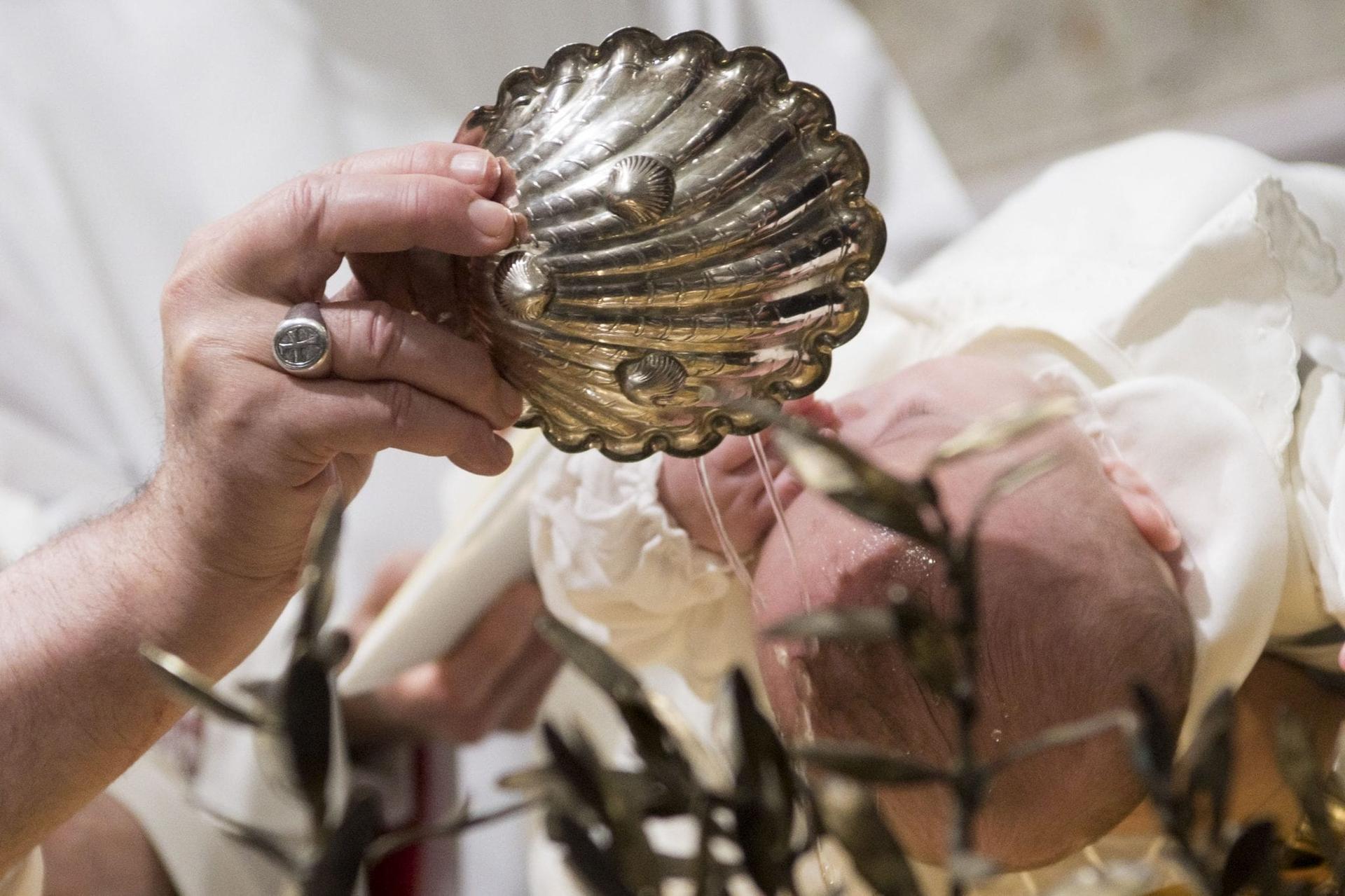ROME – Pope Francis celebrated Mass in the Sistine Chapel Sunday, marking the Feast of the Baptism of the Lord, as he does every year, by baptizing the babies of Vatican personnel and telling their parents that to pass on the faith, they must start at home both by giving a good example and teaching their children the basics.
In his homily for the Jan. 13 Mass, during which he baptized 27 babies, including 12 girls and 15 boys, Francis noted how at the beginning liturgy the parents were asked what they wanted for their children, to which they collectively responded saying they were asking for “the faith.”
“You ask for faith from the Church for your children and today. They will receive from the Holy Spirit the gift of faith in their hearts, in their souls,” he said, adding that “this faith must grow.”
Though children learn the faith by studying it in catechism courses as they get older, the pope said that before that, “faith is transmitted. And this is a task that affects you,” he said, speaking to the parents and godparents of the children.
Transmitting the faith, he said, “is done at home, because faith is always transmitted in dialogue, dialogue within the family, at home, in the climate of the home. This is your task: to transmit the faith with your example, with your words, teaching them how to make the Sign of the Cross.”
Francis noted how he has often seen children who have never been taught how to make the Sign of the Cross, so “they do something and you don’t know what it is.”
He told parents to teach their children these basic elements of the faith, to be good examples, and to provide an environment of love and peace in the home, “so they see Jesus is there.”
Francis also offered the parents a piece of advice, cautioning them to never fight in front of their children.
“It’s normal that spouses fight, it’s normal. It would be strange if not,” he said, “but do it so they don’t see it. You don’t know the anguish a child has when they see their parents fight.”
“Your task is to transmit the faith to them, transmit it at home, because it’s learned there. Then they will study it, but faith at home,” he said, adding that providing a peaceful environment where children can grow without the stress of hearing their parents fighting is part of providing a good example and allowing the faith to grow.
As he does every year, the pope closed his homily telling mothers not to be afraid to breastfeed their babies if they are crying, which he said would have “a polyphonic effect,” leading other infants to join in.
Francis’s Mass for the Baptism of the Lord marks the end of this busy holiday marathon of Masses, speeches and liturgies, officially closing the Christmas season.
As a liturgical footnote, given the design of the Sistine Chapel, the baptism Mass is generally the lone occasion each year when the pope celebrates ad orientem, “towards the east,” meaning with the priest facing the altar rather than the congregation. It’s the style associated with the older Latin Mass prior to the Second Vatican Council in the mid-1960s.
In his Angelus address after Mass, Francis reflected on the biblical scene of Jesus’ baptism, saying the passage points to the key dynamics of Jesus’ relationship with the people, and his relationship with God the Father.
The people, he said, are not only “a background of the scene,” but they are “an essential component of the event.” Before Jesus is immersed in the water of the Jordan River, he is immersed in the crowd of people waiting to be baptized by John the Baptist, meaning he has united himself to them, “fully assuming the human condition, sharing in everything but sin,” he said.
By joining the people who ask John the Baptist to baptize them, Jesus also shared their desire for internal renewal, and himself became a “new creation,” he said. Noting how in the Bible a dove descends over Jesus while a voice from heaven says, “this is my son, with whom I am well pleased,” Francis said these words are also directed to each Christian today.
In terms of his relationship with God the Father, after immersing himself with the people, Jesus then immerses himself in prayer and begins his public ministry, the pope said, noting how Jesus constantly refers to himself as being “sent by the Father to show his goodness and his love for all men.”
For Christians to be faithful, they must unite themselves to Jesus just as he united himself to the Father, Francis said, adding that this unity is built through prayer and action, giving a “clear Christian witness not built on our own human projects, but according to the plan and style of God.”
He closed his address urging Christians to commit themselves to remember their baptismal promises, and to remind themselves that Jesus saved mankind “not by our own merits, but to implement the immense goodness of the Father, which makes us merciful to all.”














